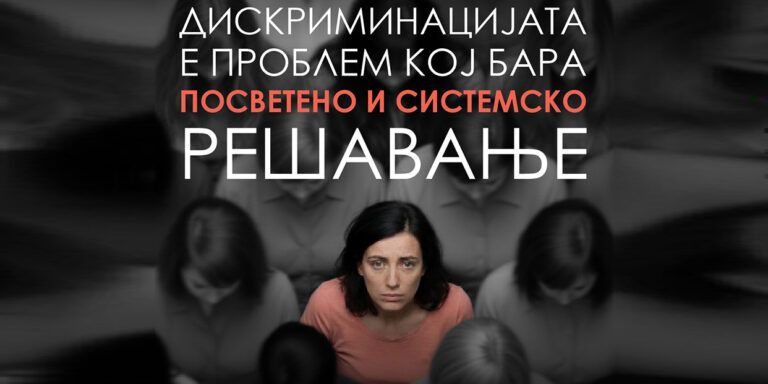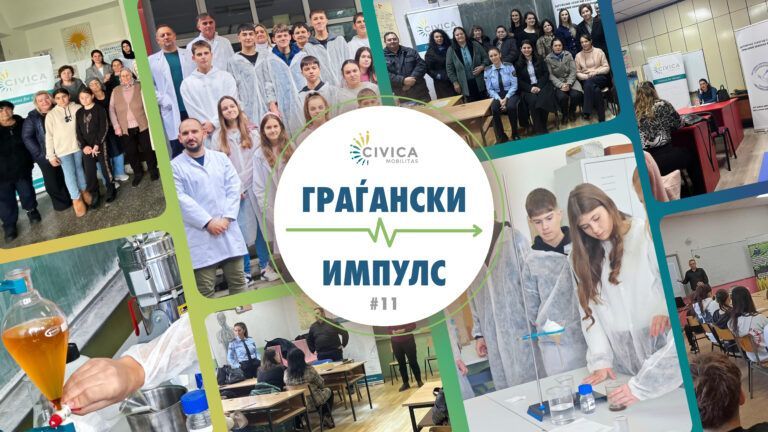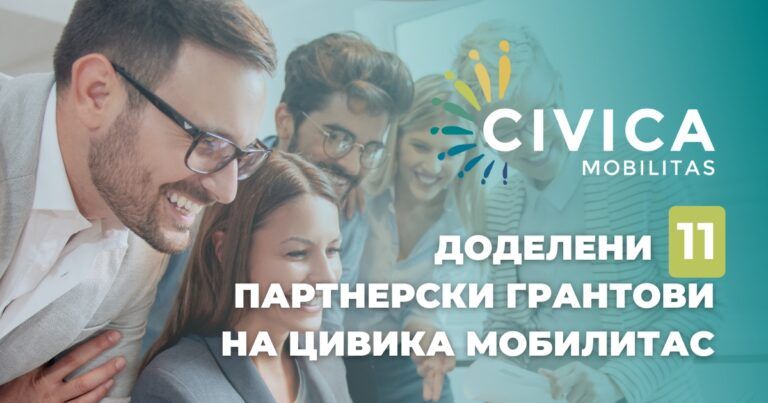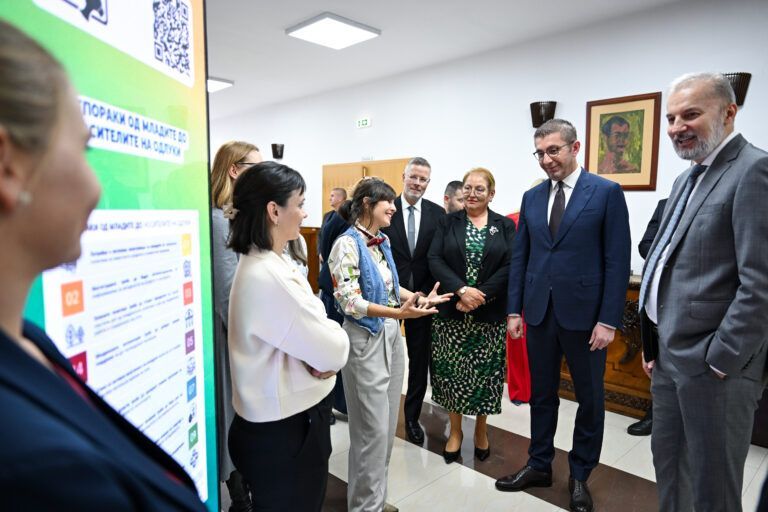“Time of Challenges”
The role of civil society organizations in solving the social problems, especially of the actual political crisis was the main topic of the panel held within the national forum of Civica Mobilitas titled “Time of Challenge” on 16 November 2016 in hotel Drim in Struga.
Dona Kosturanova from Youth Educational Forum (YEF), Misha Popovik from Institute for Democracy “Societas Civilis” – Skopje (IDSCS), Aleksandar Cekov from the Center for Research and Policy Making (CRPM), and Nazim Rasidi from Diversity Media talked at the panel.

They have no dilemma that the civil society organizations should have an active role in solving the crisis. “We have a responsibility to adapt to the situations in the society”, Kosturanova said, “but we face an urge for control of the things at each possible level. We had the students’ elections which should concern us, there were irregularities, but nothing happened in regard to it. The Council for cooperation with civil society organizations was established without consultations with the civil society. Staying aside from the social dynamics makes us irrelevant”, she said.

“Captured state creates reduced opportunities for dialogue”, Misha Popovik thinks. “We have unilateral politics and unilateral governance by the authorities, and it takes away the opportunity for dialogue and creates polarization.” According to Aleksandar Cekov from CRPM, the civil society organizations have a huge impact on the citizens of how the political parties are perceived, which has helped to demystify some processes. “We expect that this impact will be effectuated in the future. The results from the civil society will come gradually. It is a long-lasting process”, he said. Nazim Rasiti talked about the need for cooperation between the civil society organizations and media for the organizations’ solutions to be seen by the citizens. “If the solutions are seen by the citizens, they will exert pressure to the political structures”, he said.

“One of the greatest challenges of the civil sector is how to deal with the social crisis, because it is not only about political crisis, but also moral, ethical and value crisis”, Vladimir Lazovski from Open the Windows said. According to Lulzim Haziri from ADI, the question is how to channelize the diversity of the sector. “Is the representation our greatest problem? Who is going to represent, and where? From time to time, networks are established, but they are not sustainable. It is necessary to use the space more, and to use the opportunities for debates”, he said.
In addition to the panel, many parallel events, presentations, workshops, etc., were organized during the national forum.

The Scout Association of Macedonia organized a workshop on the topic of “Alternative methods for engaging the young people through informal education”. The motive was to identify new ways for mobilization, especially senior young people who would be trained to be mentors of the younger members, whose interest is much higher. The Association for Clean Environment “Let’s do it Macedonia” presented the idea of “Zero waste municipalities in Macedonia”. The organizations New Contact and Izvor from Kratovo have established the informal network for migration, the Macedonian Center for Culture and Development presented the programs “Citizens’ prevention” and “Healthy sport for healthy society”, also the organizations: Epilepsy Macedonia, National Council for Gender Equality (SOZM), Youth Alliance – Krusevo, etc. made their presentations. In addition to the presentations, great number of organizations used the opportunity to present themselves through stands, posters, and banners.

More than 300 civic activists and other interested citizens have visited the national forum.


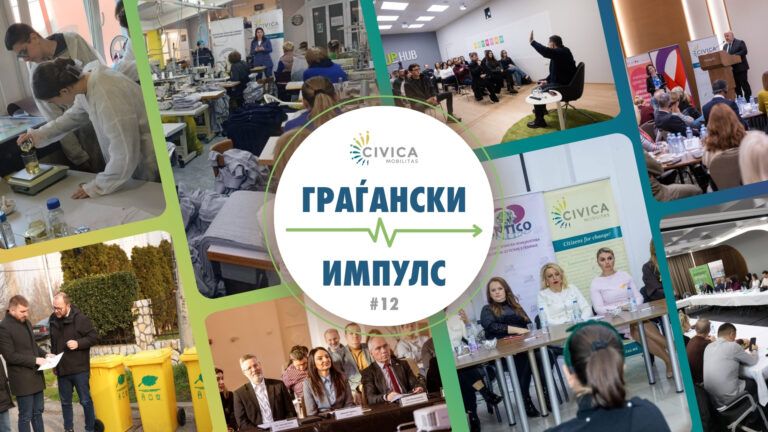
![Sre]ni praznici(2)](https://civicamobilitas.mk/wp-content/uploads/2025/12/sreni-praznici2-768x432.jpg)
